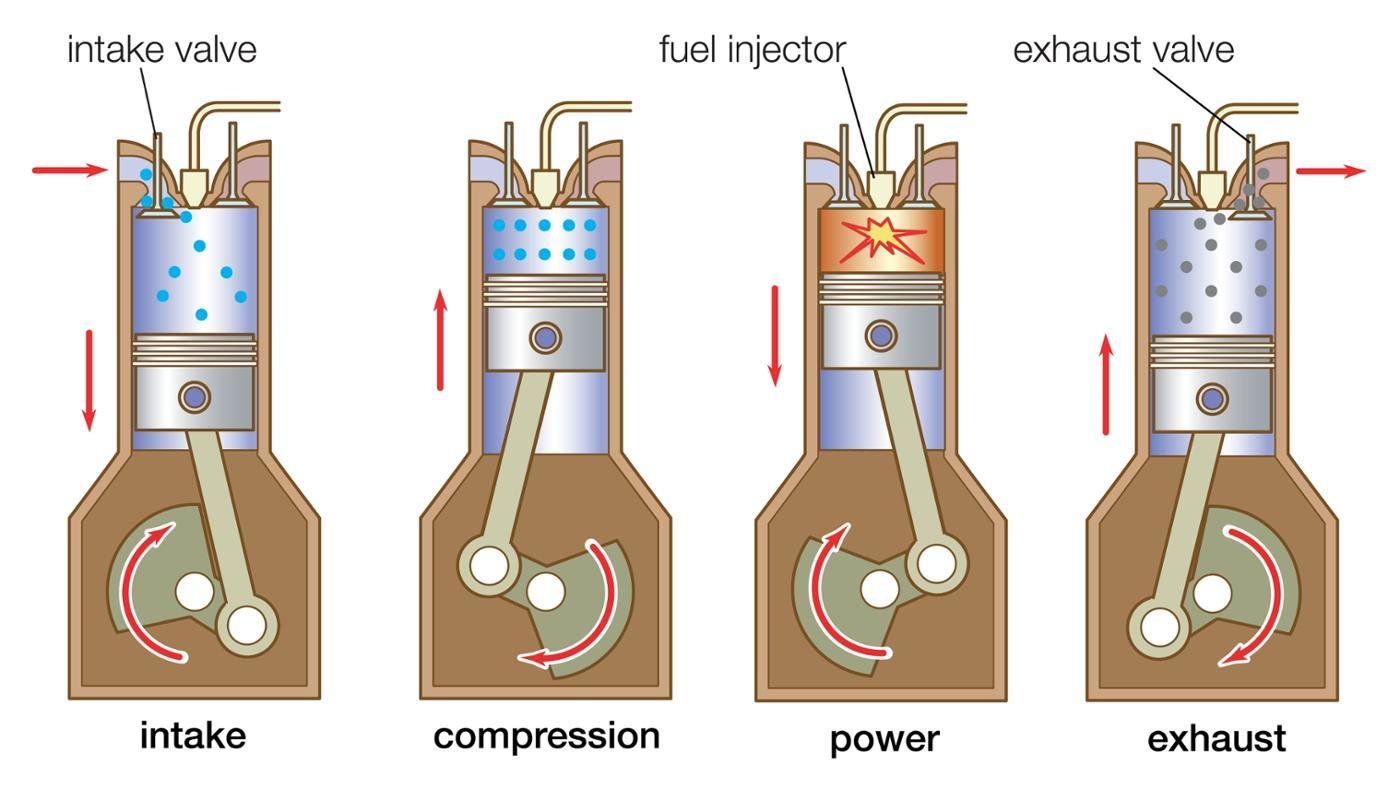Client Evaluations: Why Engines For Africa Sticks Out
Client Evaluations: Why Engines For Africa Sticks Out
Blog Article
A Complete Guide to Selecting the Right Engine for Your Project
Picking the appropriate engine for your task is an important choice that can substantially impact its general success. It is critical to carefully specify your task needs, evaluate efficiency demands, and think about user-friendliness together with other essential variables. In addition, recognizing the neighborhood assistance readily available and inspecting cost ramifications can better refine your option. Each of these aspects plays a critical role in making sure that your picked engine not just satisfies immediate goals yet also lines up with long-term desires. As we check out these considerations, you might discover that the nuances of each aspect disclose more than at first expected.
Define Your Job Requirements
Specifying your project requires is a critical step in selecting the proper engine for effective execution. An extensive understanding of your job's goals will lead you in determining the attributes and capacities required from an engine. Begin by laying out the scope of your project, including the wanted capability, target audience, and the certain outcomes you aim to attain.
Following, consider the technical demands that align with your project goals. This includes examining the compatibility of the engine with existing systems, in addition to the programs languages and structures that will be made use of. Additionally, assess the degree of scalability required to accommodate future growth or modifications popular.
Spending plan constraints also play a vital function in defining your task requires. Develop a clear monetary framework to assist your decision-making procedure, making sure that the engine chosen fits within your budget plan while supplying the needed functionality.
Evaluate Efficiency Demands

Following, consider the scalability of the engine. Assess whether it can deal with increased workloads as your job expands. Engines that sustain horizontal scaling are frequently more suitable for larger applications. In addition, examine the engine's performance under various conditions, such as peak use situations, to guarantee it satisfies your reliability requirements.
Take Into Consideration Convenience of Use
While technological specifications are necessary, the simplicity of usage of an engine can substantially affect the development procedure and total job success. An instinctive interface, clear documentation, and structured operations can drastically lower the discovering curve for designers, allowing them to concentrate on creativity and analytic instead of grappling with complicated tools.
When assessing an engine's simplicity of usage, take into consideration the onboarding experience. A well-structured intro, total with tutorials and example jobs, can help with a smoother transition for brand-new individuals. Furthermore, the quality and comprehensiveness of the engine's documentation play a vital role; comprehensive overviews and API references can encourage designers to fix and execute features effectively.
An engine that permits for very easy adjustments can be a lot more straightforward, as designers can customize it to fit their specific needs without comprehensive problem. Ultimately, picking an engine that prioritizes convenience of usage can lead to an extra productive and enjoyable development experience.
Assess Neighborhood and Assistance
The stamina of an engine's neighborhood and assistance network can significantly influence a programmer's experience and success. A vibrant neighborhood usually shows a riches of shared understanding, resources, and fixing aid that can improve your project's advancement process. When examining an engine, consider the dimension and task degree of its area. Bigger areas typically provide extra discussion forums, tutorials, and third-party plugins, enabling programmers to find services more efficiently.
In addition, examine the schedule of main assistance networks. Dependable paperwork, receptive customer assistance, and regular updates are essential for attending to technical problems and maintaining your task on track. Engines For Africa. Energetic communities additionally promote collaboration, providing opportunities for networking and comments, which can be indispensable, specifically for little teams or independent developers
Additionally, check out the existence of community-run occasions, such as hackathons or meetups. These events can enrich your understanding of the engine while linking you with skilled customers and possible collaborators. In summary, a robust neighborhood and support system not only streamline advancement however also produce an atmosphere for learning and development, ultimately enhancing the likelihood of your task's success.
Contrast Expense and Licensing Choices
Budget factors to consider play an essential duty in choosing the appropriate engine for your job, as the price and licensing alternatives can dramatically affect both short-term expenses and long-lasting viability. Engines For Africa. Different engines use varying prices structures, which can include single purchase fees, membership models, or revenue-sharing agreements based on your project's earnings

Accrediting options additionally vary dramatically. Some engines are open-source, providing versatility and community-driven assistance, while others may require exclusive licenses that limit use and circulation. Understanding the implications of each licensing version is important, as it impacts possession rights, future scalability, and prospective legal commitments.
Verdict
Finally, choosing the suitable engine for a task requires an extensive assessment of specified task needs, efficiency demands, ease of usage, community assistance, and cost factors to consider. By systematically attending to these essential variables, decision-makers can guarantee positioning with both existing and future job needs. A well-informed option ultimately boosts the chance of task success, making it possible for effective source allowance and maximizing potential outcomes within the defined budgetary restrictions.
Selecting the appropriate engine for your task is an important decision that can substantially impact its general success.Specifying your project needs official statement is a vital action in picking the appropriate engine for successful execution. A comprehensive understanding of your job's goals will lead you you can find out more in identifying the attributes and capabilities called for from an engine.As soon as you have a clear understanding of your job needs, the following action is to review the efficiency demands of the engine.In verdict, picking the ideal engine for a job requires a comprehensive evaluation of defined task requirements, efficiency requirements, simplicity of use, community assistance, and expense factors to consider.
Report this page